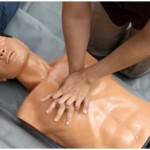The dental hygienist works in the dental office and unlike the dentist who is specialized in diagnosing and treating dental problems, the dental hygienist job description specializes in prevention of the dental problems. The dental hygenists are supplying the patients with preventive care during their visit in the dentist office. These professionals have higher education than the dental assistant and they are specialists in oral hygiene.
Process of dental hygiene and oral care
Dental hygienist offer services to the patients that are promoting the oral health, promoting better oral hygiene and developing new habits. They are also performing treatments for maintaining good and healthy mouth overall. They are cleaning the teeth from stains, tartar, and plaque; applying fluorides and other substances for protection of the teeth. They can
 also help the patients to make the right choice for a tooth brush and tooth paste, and give advice to promote the oral care by teaching the patients how to properly brush and floss their teeth. It is important to keep a track of every patient’s oral care history treatments, and plans for further procedures. The effectiveness of all the treatments is due to the good evaluation of the dental hygienist of the patient’s state, and every approach is different for each patient. Good dental hygiene diagnosis needs excellent planning based on the patient’s needs, and his history records.
also help the patients to make the right choice for a tooth brush and tooth paste, and give advice to promote the oral care by teaching the patients how to properly brush and floss their teeth. It is important to keep a track of every patient’s oral care history treatments, and plans for further procedures. The effectiveness of all the treatments is due to the good evaluation of the dental hygienist of the patient’s state, and every approach is different for each patient. Good dental hygiene diagnosis needs excellent planning based on the patient’s needs, and his history records.
Training and education
Usually to work as a dental hygienist it is required to have a bachelors or a master’s degree in dental hygiene. After getting the appropriate degree they need to be registered, and obtain their license before they can start working. Depending on the dental hygienists aspirations they can become teachers, practitioners in the dentist office, or they can be associated with school programs for dental hygiene. They can also take a doctoral diploma after the graduation in the field. Their work is connected with the dentists and dentist’s assistants; they need to be detail oriented to achieve good diagnosis and sensitive to the patients needs during the procedures.
They have a vital role in preventing the oral problems that may occur and maintaining a healthy mouth. They provide their services to a variety of facilities such as private dental offices, hospitals, schools, faculty practice clinics, some can even be included in the education and research centers, and they are combining their skills with the dentists. They can work full time, or have a part time job, depending on the needs of the profession they are included.
Oral hygiene
 Dental hygienists practice and aim to keep the mouth and the teeth clean and fresh. They are preventing the dental problems like gingivitis, plaque, cavities or even bad breath. Some procedures achieve healing and regeneration of some tissues in the mouth. Cleaning the teeth and preventing gum diseases is an important role of the oral hygiene, and the dental hygienist can remove the dental plaque, tartar, prevent cavities, gingivitis or teeth loss. This can be achieved with recommending the right toothpaste and toothbrush, cleaning methods, as well as listing the harmful and beneficial foods for better oral health. Bad oral hygiene can into bad overall health or condition of the patient.
Dental hygienists practice and aim to keep the mouth and the teeth clean and fresh. They are preventing the dental problems like gingivitis, plaque, cavities or even bad breath. Some procedures achieve healing and regeneration of some tissues in the mouth. Cleaning the teeth and preventing gum diseases is an important role of the oral hygiene, and the dental hygienist can remove the dental plaque, tartar, prevent cavities, gingivitis or teeth loss. This can be achieved with recommending the right toothpaste and toothbrush, cleaning methods, as well as listing the harmful and beneficial foods for better oral health. Bad oral hygiene can into bad overall health or condition of the patient.
Salary
The median pay for a dental hygienist in 2018 was $74,820 per year, which means approximately $35.97 per hour. The outlook for this job is that the employment for this occupation will rise much above average with 33% from 2012 to 2022 from all occupations.






















